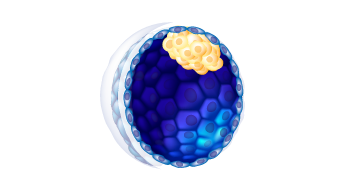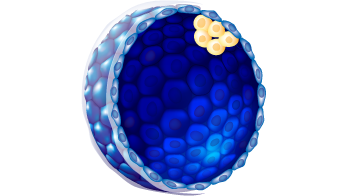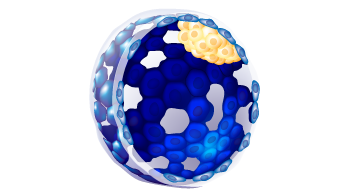BJNhem19
JNCSRe001-A
General
Cell Line |
|
| hPSCreg name | JNCSRe001-A |
| Cite as: | JNCSRe001-A (RRID:CVCL_B842) |
| Alternative name(s) |
BJNhem19
|
| Cell line type | Human embryonic stem cell (hESC) |
| Similar lines | No similar lines found. |
| Last update | 28th July 2017 |
| User feedback | |
Provider |
|
| Generator |
Jawaharlal Nehru Centre for Advanced Scientific Research (JNCSR)
Contact:
Bangalore Stem Cell Group |
| Derivation country | India |
External Databases |
|
| Cellosaurus | CVCL_B842 |
| NIHhESC | NIHhESC-10-0083 |
| Wikidata | Q54797016 |
General Information |
|
| Publications |
|
| Projects | |
| * Is the cell line readily obtainable for third parties? |
Yes |
Donor Information
General Donor Information |
|
| Sex | male |
Phenotype and Disease related information (Donor) |
|
| Diseases | |
Ethics
| Was the embryo established purely for research purposes? | No |
| Have both parents consented to the use of the embryo for ESC derivation? | No |
| Has informed consent been obtained from the donor of the embryo/tissue from which the pluripotent stem cells have been derived? | Yes |
| Was the consent voluntarily given? | Yes |
| Alternatives to consent are available? | Yes |
| Alternatives to consent | |
| Alternative consent approval number | NIHhESC-10-0083 |
| Please indicate whether the data associated with the donated material has been pseudonymised or anonymised. | anonymised |
| Does consent explicitly allow the derivation of pluripotent stem cells? | Yes |
| * Does consent expressly prevent the derivation of pluripotent stem cells? | No |
| Will the donor expect to receive financial benefit, beyond reasonable expenses, in return for donating the biosample? | No |
| Has a favourable opinion been obtained from a research ethics committee, or other ethics review panel, in relation to the Research Protocol including the consent provisions? | Yes |
| Name of accrediting authority involved? | Institutional Commitee for Stem Cell Reseaarch and Therapy (IC-SCRT) |
| Approval number |
hESC Derivation
| Date of derivation | 2007-04-01 |
| Embryo stage | Blastula with ICM and Trophoblast |
| Supernumerary embryos from IVF treatment? |
Yes
|
| PGD Embryo? |
No |
| Expansion status |
2
|
| ICM morphology |
C
|
| Trophectoderm morphology |
b
|
| ZP removal technique | Spontaneous Hatching |
| Cell isolation | Immunosurgery |
| Cell seeding | Isolated ICM |
Culture Conditions
| Feeder cells |
mouse embryonic fibroblast cell Cellfinder Ont Id: EFO_0004040 |
|||||||||
| Passage method | Mechanically | |||||||||
| CO2 Concentration | 5 % | |||||||||
| Medium |
Other medium:
Base medium: Knockout-DMEM
Main protein source: Fetal Calf Serum Serum concentration: 5 % Supplements
|
Characterisation
Analysis of Undifferentiated Cells
| Marker | Expressed | Immunostaining | RT-PCR | Flow Cytometry | Enzymatic Assay | Expression Profiles |
| POU5F1 (OCT-4) |
Yes |
|
|
|||
| SSEA-4 |
Yes |
|
||||
| TRA 1-60 |
Yes |
|
||||
| TRA 1-81 |
Yes |
|
||||
| GDF3 |
Yes |
|
||||
| ZFP42 (REX-1) |
Yes |
|
||||
| GABRB3 |
Yes |
|
||||
| GCT343 |
Yes |
|
||||
| GCTM2 |
Yes |
|
||||
| NANOG |
Yes |
|
||||
| SOX2 |
Yes |
|
||||
| TDGF1 |
Yes |
|
||||
| THY1/CD90 |
Yes |
|
Differentiation Potency
Microbiology / Virus Screening |
|
| HIV 1 | Negative |
| Hepatitis B | Negative |
Genotyping
Karyotyping (Cell Line) |
|
| Has the cell line karyotype been analysed? |
Yes
46XY
Passage number: 35
|
Other Genotyping (Cell Line) |
|


Login to share your feedback, experiences or results with the research community.